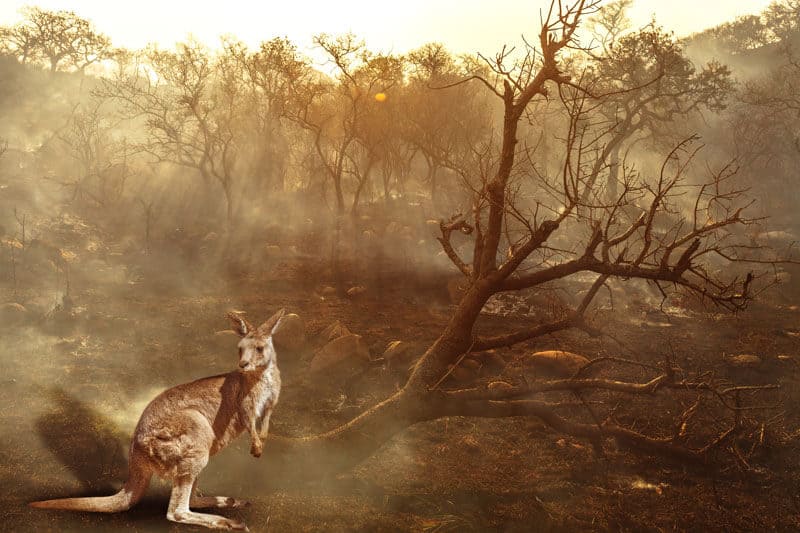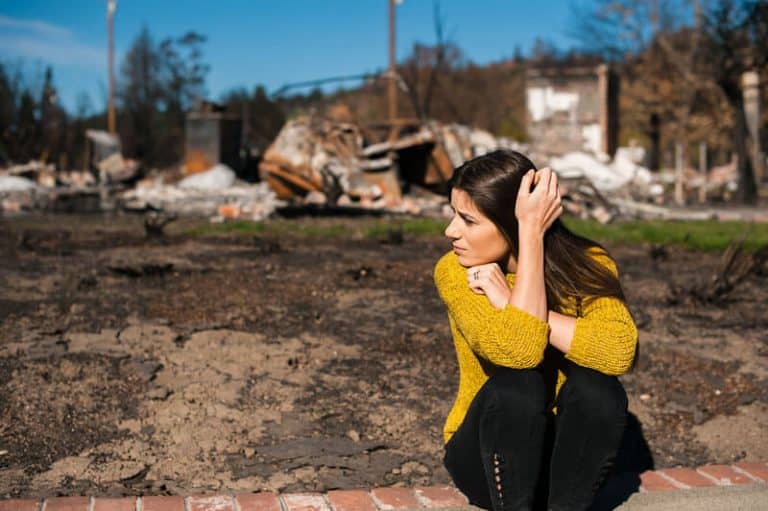The ongoing devastation of Australia’s bushfires are taking their toll day after day on our mental health. Whether directly affected and lost everything while sheltering on a beach or watching the disaster unfold, everyone is affected in some way.
It is impossible not to feel the effects with so many pictures and videos circulating of people fleeing the fires, volunteers fighting massive flames, millions of our wildlife dead, and the decimation of our environment and everything we know and love. Let alone the death of so many people and the direct impact on people’s lives as they flee from the heat and flames of the wildfires that continue to burn across the country. Then there is the trauma of rebuilding lives, homes and businesses over coming months and years.
So how do you cope?
Some people will cope better than others as they deal with the direct impact on their lives. It is important to distinguish between what are normal and extreme reactions to this sort of trauma. You or someone you know may need additional mental health support so watch out for each other.
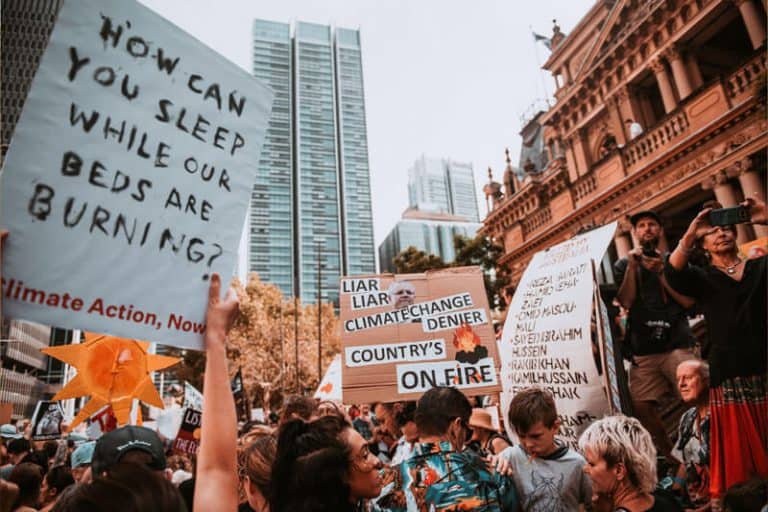
Normal reactions to the trauma of a bushfire
How you feel will be intense for at least the first week and will gradually fade within a month. Normal reactions can include:
- unable to see a future as you cannot plan ahead
- constantly being close to tears
- sleeplessness and often waking up through the night
- feelings of devastation and helplessness
- unable to focus on anything for any length of time
- memories that keep playing over and over in your head
- nightmares and bad dreams of the bushfires or escaping them
- constantly questioning the outcome would be different if you had made different decisions
- feeling detached from everything
- a sense of numbness.
Abnormal reactions
There are also abnormal or uncommon reactions to the bushfires. These include:
- a lack of interest or hope for the future
- thoughts of suicide or self-harm
- symptoms of a panic attack such as dizziness, feeling breathless, a racing heart rate, feeling shaky and breathless
- feeling overly guilty about what you did or did not do or say
- going to extremes to avoid remembering the experience and it starts to prevent you from living your life
- overreacting to things like a door slamming and it takes you a while to calm down
- feeling overwhelmed with fear and there does appear to be a reason
- thinking your physical or emotional reactions are abnormal.
Tips to help you cope the trauma of a bushfire
Whether you are directly affected by the fires or on the sidelines safe, you may find it tough to cope with the trauma of such devastation. For some people talking can help. You may be profoundly affected but ignoring your feelings can make it harder to recover.
How to help kids cope
How kids cope after a bushfire can depend on their parent’s ability to recover. It is important for kids to receive reassurance about their safety and to allow them to talk about any fears and worries.
Signs a child is not coping includes withdrawing into themselves, continually talking about or drawing pictures of death and destruction and being overly clingy. Talk to your kids about the experience as a family, get them to volunteer to help someone or get involved in a project at school. It will help to empower them and help them feel like they are in control.
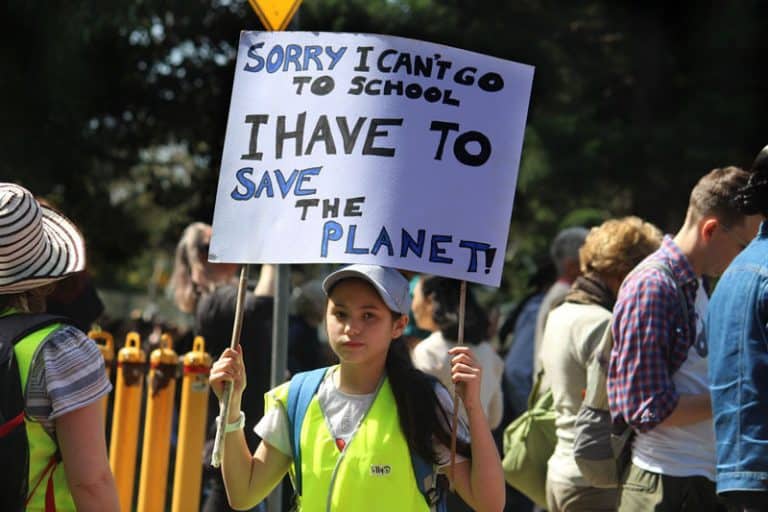
Talk about what happened
For anyone directly involved in the bushfires, the memories after the event can be frightening and difficult to deal with. Sit down with family and friends and share your experiences and stories. Remind the kids and each other that no matter terrifying the experience that you all survived. It is also important to acknowledge and remember all the help you received from everyone.
Minimise media exposure
Minimise media exposure especially for kids. Seeing the same horrific pictures and videos can cause greater anxiety. Turn off social media and only watch news stories so you now what is going and if you are still at risk. But it is a good idea to spend time relaxing and having fun (even if you do not feel like it) to reduce the stress.
Acknowledge feelings of anxiety
Ongoing high levels of anxiety is to be expected after the trauma of a bushfire. Your adrenaline may be high and you can feel as if you are running on empty. This happens when you feel powerless to do anything about the problem in the here and now.
Put a strategy in place to reduce anxiety. This can include:
- going for a walk
- exercising to burn off pent up energy
- taking deep breaths
- practising mindfulness meditation or download my free mindfulness audio program to help reduce your anxiety
- reduce your stimulant intake of things like alcohol and caffeine.
But most of all, be confident you can rebuild your life even though you may have lost your home and property.
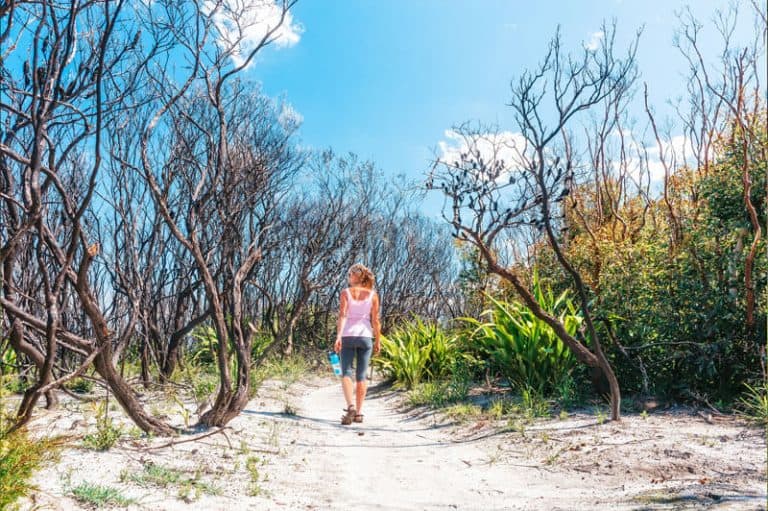
Be kind to yourself
It is important to be kind to yourself after a major trauma. People not directly affected by the fires can feel sad, empathy and stressed at what they are seeing. Try to avoid social media where there is an endless stream of bad news and harrowing photos of the fires and the devastation left behind. Also try to avoid using drugs or alcohol as a coping mechanism.
Spend quality time with your family and friends. Do things you enjoy. Try to re-establish your routines to help you deal with the trauma of the fires. I know it is hard but it will help you move forward.
And for people who have lost everything start doing the things you used to do and it is important to take time out to have fun. This is a good way to relieve the stress caused by what you have been through.
Socialise with others who have been through the same thing as you. Spend time with your community and joke around to help reduce the stress effects on your brain after such a traumatic event.
Do not rush your recovery. Take it slow. Do not expect too much and try to fix everything quickly or it could backfire and disrupt your brain’s healing by overloading it.
Always remember others have been through the same thing as you in the past and have rebuilt their homes and lives. You are not alone.
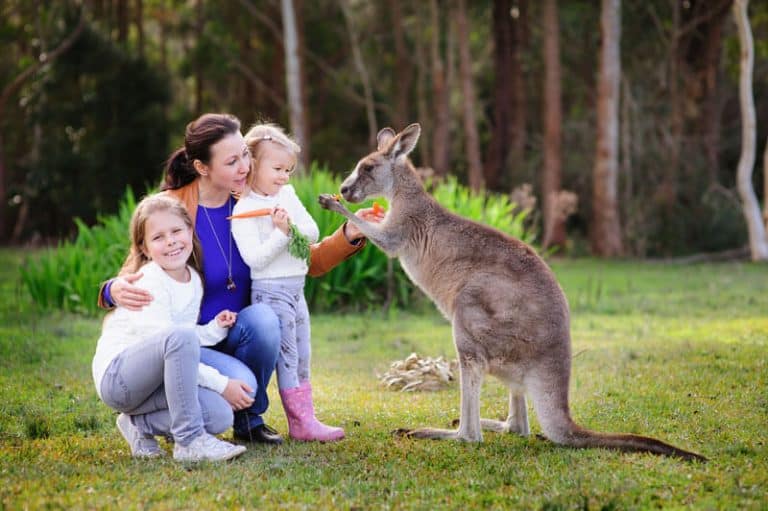
Other things that can help you cope
Other things that can help you cope with the devastating fires include:
- discuss how you feel with others when you feel up to it
- surround yourself with people who care and support you
- know what to expect when impacted by trauma and have a plan to counteract it
- do not put too much pressure on yourself at any one time
- have realistic goals that will motivate you and celebrate even the smallest accomplishments and achievements
- know there will be times when you feel like you are not progressing
- talk to friends and family about the highs and lows of recovering.
And know there is help available when you feel overwhelmed in the weeks or months following the trauma of the bushfires. The sooner you deal with how you feel, the sooner you will heal. And keep in mind, the symptoms of trauma may not become apparent straight away in people who were on the frontline of the fires. It can sometimes take weeks and even months for it to hit.
We are here to help
Stress-related trauma is difficult to deal with and you may need help. When you are not coping, contact us to find out how we could help get your life back on track.
Let me help stop the effects of mental health issues
With my help you could learn how to deal with the stress and trauma of horrific events such as the bushfires. We may be able to help you move through and deal with your feelings whether you were directly or indirectly affected.
Have a listen to what Brendan has to say about my program after only a few sessions.

